When Kim Jong-un delivered his annual New Year’s address, the world parsed his every word, deliberated on the tonal and substantive differences with prior years in an effort to figure out his intentions and what we might expect from North Korea in 2018. Amid his muscular rhetoric on North Korea’s achievement of “the great historic cause of the perfection of [its] nuclear forces,” his boast that the “nuclear button is always on [his] desk,” and his promise to “mass produce nuclear warheads and ballistic rockets,” Kim offered an olive branch, showing a willingness to participate in the winter Olympics in Pyeongchang, South Korea.
The leadership in Seoul immediately seized the moment, conveniently ignoring North Korea’s threats, and quickly extended an invitation to the North to attend the Olympics, set to open on February 9. But South Korean leaders have failed to fully exploit their leverage against North Korea, instead tending to Pyongyang’s fickle preferences and blustery demands.
The Moon Jae-in administration’s eagerness made Korea watchers in Washington cringe, as they warned that Kim’s offer is a trap, a well-worn tactic designed to drive a wedge in the U.S.-South Korea relationship and dampen sanctions enforcement, all while buying time for Pyongyang to continue developing nuclear weapons. Postponing the annual U.S.-South Korea military exercises until after the Olympics also exacerbated fears that Washington and Seoul were conceding to Pyongyang and easing up on “maximum pressure.”
Since then, President Moon’s government has been under fire for falling for North Korea’s dangle. Critics have charged that Moon handed Kim a propaganda victory, as South Korean and international media have been showcasing the North’s Masik ski resort—a possible venue for training—and gushing over Hyon Song Wol, a singer in North Korea’s all-female Moranbong band, as she scouted for potential venues for the North’s Samjiyon orchestra. Indeed, if one were to see North Korea through the euphoric lens of the “peace Olympics,” the cruel, impoverished, and isolated regime seems almost normal, and frankly, upscale and modern—exactly what Pyongyang wants the world to see.
The Moon administration has touted the thaw in inter-Korean relations as laying the foundation for U.S.-North Korea dialogue on denuclearization and trying to nurture the fragile rapprochement. But North Korea has not even budged an inch, continuing to refuse talks on denuclearization, belittling Seoul’s efforts to avoid violating sanctions in its plans for North Korea’s participation, and gearing up for a massive military parade on the eve of the Olympics. All this, while Seoul affords VIP treatment to singer Hyon and replacing South Korean athletes to make room for North Korean ones.
Halfway across the world, during a foreign ministerial meeting in Vancouver, South Korea’s foreign minister reportedly proposed resuming humanitarian aid to North Korea—a proposal the United States, Japan, and Britain opposed.
Meanwhile, the South Korean government has sought to stifle domestic criticism, arguing that the current opportunity for rebuilding inter-Korean ties is critical for South Korea’s future security.
Unfortunately, North Korea taketh, and continues to taketh away, without giving up much in return.
Pyongyang’s New Year’s outreach was probably driven by a desire to lure Seoul away from the U.S.-led maximum pressure campaign, but it also reflected a sense of vulnerability, which Seoul either did not recognize or ignored. Though the speech extolled the country’s accomplishments in the nuclear and ballistic missile development, it also indicated that North Korea faces headwind in improving the economy—the second prong of Kim’s byungjin policy of simultaneous advancement of nuclear weapons and the economy. Kim called for North Koreans in various industries to work harder, faster, and longer and seemed to be outsourcing the problem down to the local level: “Provinces, cities, and counties must rely on their own sources of raw materials and develop the local economy in a distinctive way,” he said. In fact, the maximum pressure campaign might be taking a toll, prompting the leadership to lower the temperature on tensions with the United States to try to extract sanctions relief. The outreach might also have been a sign that the regime was taking the Trump administration’s repeated threats about military strikes seriously enough to warrant dialing back provocations.
Had South Korea worked off this premise, its approach to North Korea’s Olympic gambit might have played out differently. Seoul did not have to sponsor Hyon’s two-day venue shopping tour, which turned out to be a propaganda bonanza for the Kim regime. Rather, South Korean officials could have simply presented the venue they thought would be most suitable and allowed Hyon to survey the arena in a low-key, quick visit.
Instead of trying to mollify North Korea’s ire over public protests against Kim Jong-un, President Moon—who rode the wave of peaceful mass demonstrations to win the presidency last year—could have explained that South Korea respects freedom of speech and assembly and the human rights of every individual. He could have emphasized that South Korea’s prosperity and international standing as the host of the Winter Olympics is testimony to the strength of its democratic processes and the people’s desire for good governance.
Seoul still has an opportunity to shape inter-Korean relations, but it should approach ties from a position of strength, not bending toward Pyongyang’s preferences. South Korea’s security lies in the strength of its relationships with the U.S. and regional partners and its democracy—Seoul cannot rely on the consistently unreliable Pyongyang to do the right thing on its own. North Korea should feel the weight of sanctions and the potential for U.S. strikes against it. And if it doesn’t, the Moon administration should school the North’s leaders on why they should and how they need to be guided by its only sympathetic actor in the world: South Korea.
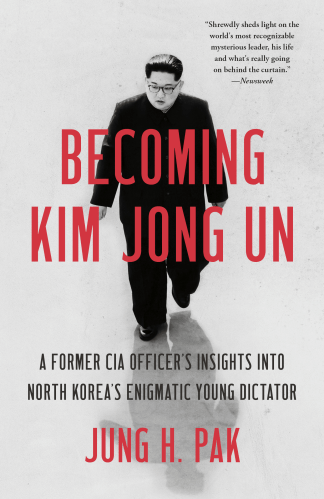
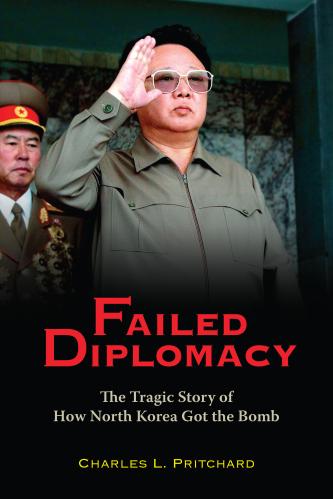
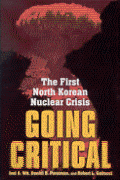
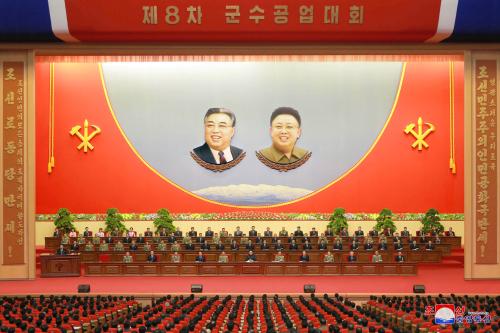
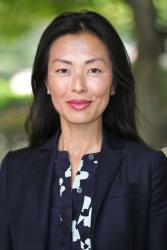

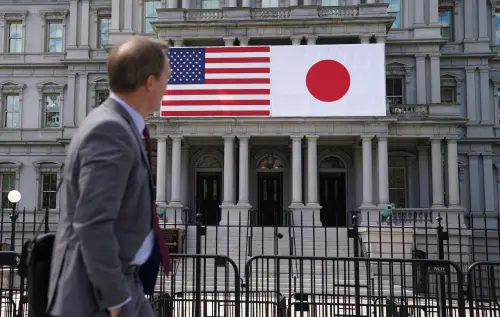
Commentary
The problem with Seoul’s welcome party for Pyongyang
January 31, 2018